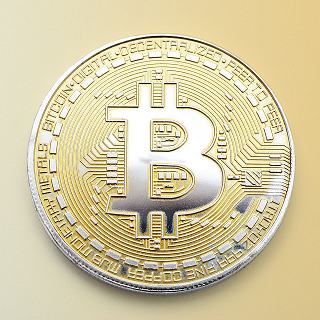You all must have read the news that the Karnataka government has ordered an SIT probe into the Bitcoin scam that took place three years ago. Today let us know briefly understand what is this Bitcoin, how it differs from RBI printed money, how to transact with it, its advantages and disadvantages or risks.
What is this BitCoin?
Bitcoin is a digital currency or crypto currency of the current digital age. Bitcoin is only in electronic form and not in physical print format like Rupees, Dollars, Euros etc. It does not belong to any country, language or bank or public organisation. Bitcoin was invented for the first time on October 31, 2008 by an anonymous person named Satoshi Nakamoto. Bitcoin has been released as an open source software since 2009. The first of the cryptocurrencies was Bitcoin and continues to be the most popular crypto currency even today. Additionally, there are thousands of different cryptocurrencies available in the market right now. Prominent among them are Ethereum, Litecoin, Ripple and DogeCoin. Cryptocurrency is digitally protected using a technology called ‘Block Chain’. There are many private companies that mine or manufacture and distribute this currency. However, neither any government nor any government agency is involved in this business.
How does Bitcoin differ from RBI printed money?
The main difference between RBI printed money and cryptocurrencies like Bitcoin is that cryptocurrencies are not controlled by any government or organization, so their price, mintage or how much to mint and circulation rules are not determined by any government or international or domestic organization. The market price of crypto currency fluctuates based on demand and availability. That is, as the demand increases, so does the price. Sometimes its market price fluctuates more than 50% in a day. Unlike RBI printed money, cryptocurrencies do not have any government or institutional guarantee or backing but the accounting and ownership of each Bitcoin transaction is maintained using block chain and distributed ledger technology.
How to transact with Bitcoin?
A bitcoin transaction involves sending of bitcoins from one person’s digital wallet to another’s digital wallet over a secure blockchain network. There are two main ways you can deal with Bitcoins. In the first way you can buy or sell bitcoins in your digital wallet with crypto online brokers. Second method is where you can deal directly on cryptocurrency exchanges. Here you send money from your bank account to a broker or cryptocurrency exchange to buy bitcoins and they send bitcoins to your digital wallet or when you sell bitcoins to the broker or cryptocurrency exchange and they sends money to your bank account.
Bitcoin advantages :-
Following are the advantages of using Bitcoin:
- Protection from Inflation – The number of Bitcoins does not increase every year like printed money, so its value does not decrease.
- Security and privacy are claimed to be the major benefits of using cryptocurrency, but there has been thefts and leakage of ownership information.
- Bitcoin can be transacted easily and quickly right from your smart phone.
- Governments cannot reduce its value suddenly.
- It does not include currency exchange or transaction fees.
Bitcoin disadvantages :-
The following are the disadvantages or risks from Bitcoin:
- India and other major countries have not accepted Bitcoin as a currency.
- It can be used for illegal transactions, and is the popular choice of cyber criminals.
- Decentralized but still managed by a few organizations, hence no guarantee of security and privacy.
- Cryptocurrency mining (production and bookkeeping) can adversely affect the environment.
- Lack of institutions or processes to file complaints/grievance or seek justice in case of theft and loss.

